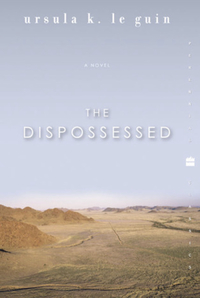Take a photo of a barcode or cover
The best parts of this book are Shevek's internal battles about balancing his scientific pursuits, pride, and his commitment to community and ideology. Resolution to the A plot was a bit underwhelming though, which is why I downgrade it from a perfect 5
Everything you expect from LeGuin. Stories within a story with insights into governmental, societal, and personal relationships. I like this a bit more than LHoD.
adventurous
emotional
funny
hopeful
inspiring
reflective
sad
medium-paced
Plot or Character Driven:
Character
Strong character development:
Yes
Loveable characters:
Yes
Diverse cast of characters:
Yes
Flaws of characters a main focus:
Yes
hopeful
reflective
relaxing
slow-paced
Plot or Character Driven:
Character
Strong character development:
Yes
Loveable characters:
Yes
Diverse cast of characters:
No
Flaws of characters a main focus:
Complicated
Some very solid points were made, but I felt absolutely nothing for these characters.
a teraz chcem prečítať každú čiarku čo kedy napísala.
adventurous
emotional
hopeful
inspiring
mysterious
reflective
medium-paced
Plot or Character Driven:
Character
Strong character development:
Yes
Loveable characters:
Yes
Diverse cast of characters:
Yes
Flaws of characters a main focus:
Complicated
Obviously a book critiquing capitalism through the lens of anarchy is bound to slap.
Prose-wise, it was a little difficult to adjust to with the more cluttered style which felt jarring to me compared to Le Guin's other books, which I feel like have so much strength in their sparseness. However, I think the cluttered style suits Urras very well. The dialogue also felt stiff at times, but the more I thought about it, the more I respected the spoken language in the book as it all really felt like it was translated from other languages. Half the time Shevek is speaking a language he learned as an adult, and the other half the time the characters are speaking a language that was created to support an anarchist revolution. It is actually incredible that the book never took any linguistic component for granted and continued to let the characters struggle through the complications of communication.
I am especially struck by a conversation at the end in which Shevek is explaining he wants to give everyone his temporal theory as a gift, "so that you cannot use the truth for your private profit, but only for the common good."
Someone replies, "In the end, truth usually insists upon serving only the common good"
He replies, "In the end, yes, but I am not willing to wait for the end."
What would it look like to insist on the common good now instead of waiting for truth to point that way in the end?
Prose-wise, it was a little difficult to adjust to with the more cluttered style which felt jarring to me compared to Le Guin's other books, which I feel like have so much strength in their sparseness. However, I think the cluttered style suits Urras very well. The dialogue also felt stiff at times, but the more I thought about it, the more I respected the spoken language in the book as it all really felt like it was translated from other languages. Half the time Shevek is speaking a language he learned as an adult, and the other half the time the characters are speaking a language that was created to support an anarchist revolution. It is actually incredible that the book never took any linguistic component for granted and continued to let the characters struggle through the complications of communication.
I am especially struck by a conversation at the end in which Shevek is explaining he wants to give everyone his temporal theory as a gift, "so that you cannot use the truth for your private profit, but only for the common good."
Someone replies, "In the end, truth usually insists upon serving only the common good"
He replies, "In the end, yes, but I am not willing to wait for the end."
What would it look like to insist on the common good now instead of waiting for truth to point that way in the end?
3.5*
It's been awhile since I've read anything by LeGuin. I think since the first of the Earthsea books left a very bad taste in my mouth.
I'm not sure this is the work of next-level fiction that some claim it is. It is, however, very good, especially for a reader who enjoys the world-building aspect of science fiction much more than the event- and character-driven portions of the story.
It's been awhile since I've read anything by LeGuin. I think since the first of the Earthsea books left a very bad taste in my mouth.
I'm not sure this is the work of next-level fiction that some claim it is. It is, however, very good, especially for a reader who enjoys the world-building aspect of science fiction much more than the event- and character-driven portions of the story.
adventurous
challenging
emotional
hopeful
inspiring
reflective
tense
medium-paced
Plot or Character Driven:
Character
Strong character development:
Yes
Loveable characters:
Yes
Diverse cast of characters:
Yes
Flaws of characters a main focus:
Yes





